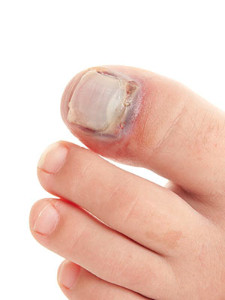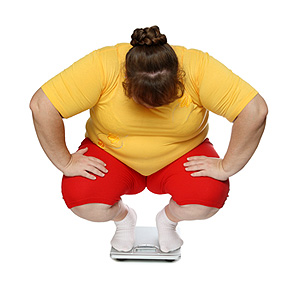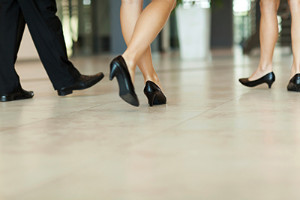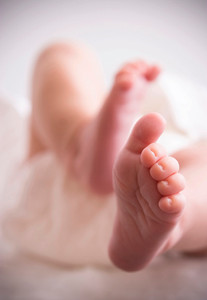July 2019
Are You Suffering From Ingrown Toenails?
Have I Broken My Toe?
 A broken toe may result from dropping a heavy object on it, or if it is severely stubbed. There are noticeable symptoms that accompany a broken toe, including immediate pain and swelling around the affected area, and patients may notice their toe is bruised. Putting on shoes and performing daily activities may be difficult to accomplish, in addition to walking without pain and discomfort. Treatment options can include taping the injured toe to the one next to it, which is referred to as buddy taping. This is helpful in providing stability to the broken toe as the healing process occurs. Gentle toe stretching can be performed as a part of therapy after the splint is removed. This is beneficial in regaining a full range of motion. If you feel you have broken your toe, it is suggested to speak to a podiatrist who can offer you the correct treatment techniques.
A broken toe may result from dropping a heavy object on it, or if it is severely stubbed. There are noticeable symptoms that accompany a broken toe, including immediate pain and swelling around the affected area, and patients may notice their toe is bruised. Putting on shoes and performing daily activities may be difficult to accomplish, in addition to walking without pain and discomfort. Treatment options can include taping the injured toe to the one next to it, which is referred to as buddy taping. This is helpful in providing stability to the broken toe as the healing process occurs. Gentle toe stretching can be performed as a part of therapy after the splint is removed. This is beneficial in regaining a full range of motion. If you feel you have broken your toe, it is suggested to speak to a podiatrist who can offer you the correct treatment techniques.
Broken toes may cause a lot of pain and should be treated as soon as possible. If you have any concerns about your feet, contact Dr. John C. Lawlor from Florida. Our doctor will treat your foot and ankle needs.
What Is a Broken Toe?
A broken toe occurs when one or more of the toe bones of the foot are broken after an injury. Injuries such as stubbing your toe or dropping a heavy object on it may cause a toe fracture.
Symptoms of a Broken Toe
- Swelling
- Pain (with/without wearing shoes)
- Stiffness
- Nail Injury
Although the injured toe should be monitored daily, it is especially important to have a podiatrist look at your toe if you have severe symptoms. Some of these symptoms include worsening or new pain that is not relieved with medication, sores, redness, or open wounds near the toe.
If you have any questions, please feel free to contact one of our our offices located in Cape Coral and LaBelle, FL . We offer the newest diagnostic and treatment technologies for all your foot care needs.
Read more about What to Know About a Broken ToeBeing Overweight Can Hurt Your Feet
 Since your feet feel the pressure of most of your body weight, being overweight can cause a variety of foot problems. Extra weight tends to bring the knees together, putting stress on the insides of the feet and arches. There are also several specific conditions that are known to be affiliated with additional weight. Gout causes severe pain in the big toe. It begins with an accumulation of uric acid in the body, which is more common for overweight individuals. You are also more likely to develop diabetes, which reduces blood flow to the feet. When you accumulate too much plaque in the arteries, you could develop peripheral arterial disease, which reduces blood flow to the feet as well. Losing weight is a practical way to avoid foot and ankle complications. If you feel that your weight may be affecting your feet, it is recommended that you consult with a podiatrist.
Since your feet feel the pressure of most of your body weight, being overweight can cause a variety of foot problems. Extra weight tends to bring the knees together, putting stress on the insides of the feet and arches. There are also several specific conditions that are known to be affiliated with additional weight. Gout causes severe pain in the big toe. It begins with an accumulation of uric acid in the body, which is more common for overweight individuals. You are also more likely to develop diabetes, which reduces blood flow to the feet. When you accumulate too much plaque in the arteries, you could develop peripheral arterial disease, which reduces blood flow to the feet as well. Losing weight is a practical way to avoid foot and ankle complications. If you feel that your weight may be affecting your feet, it is recommended that you consult with a podiatrist.
Obesity has become very problematic at this point in time and can have extremely negative effects on the feet. If you’re an obese individual and are concerned about your feet, contact Dr. John C. Lawlor from Florida. Our doctor can provide the care you need to keep you pain-free and on your feet.
Obesity and Your Feet
Since your feet are what support your entire weight when standing, any additional weight can result in pain and swelling. Being overweight is one of the main contributors to foot complications.
Problems & Complications
Extra Weight – Even putting on just a few extra pounds could create serious complications for your feet. As your weight increases, your balance and body will shift, creating new stresses on your feet. This uneven weight distribution can cause pain, even while doing the simplest tasks, such as walking.
Diabetes – People who are overweight are at serious risk of developing type-2 diabetes, which has a drastic impact on the health of your feet. As you get older, your diabetes might worsen, which could lead to loss of feeling in your feet, sores, and bruises. You could also become more prone to various infections.
Plantar fasciitis – Pressure and stress that is placed on muscles, joints, and tendons can trigger plantar fasciitis, which is an inflammation of tissue that forms along the bottom of the foot.
If you have any questions please feel free to contact one of our our offices located in Cape Coral and LaBelle, FL . We offer the newest diagnostic and treatment technologies for all your foot and ankle needs.
Read more about How Obesity Affects Your FeetHow to Avoid Pain and Injury from Standing at Work
For people that spend hours working on the ir feet everyday, there is a good chance you will develop an ailment at some point, such as blisters or cracked and swollen feet. There are ways to prevent these conditions and to make it more bearable to work on your feet. One tip is to wear the right shoes on the job. It is recommended to make sure that the shoes leave plenty of room for the toes, so that when walking around, the toes won’t hit against the top of the shoe. Another important tip is to find variation in your work and to take regular breaks. That means sitting down every couple of hours to relieve pressure from the feet. It is also key to pace yourself while on your feet as to not put so much strain on them. A final tip is to strengthen your body and recover. Whenever you have time before work, do some exercises that will strengthen your muscles and prepare the feet for the long day ahead. Then once you are done with the work day, do some stretches to relieve the stress in the limbs and muscles. In looking for the best strategies for when standing in the workplace, consult with a podiatrist.
ir feet everyday, there is a good chance you will develop an ailment at some point, such as blisters or cracked and swollen feet. There are ways to prevent these conditions and to make it more bearable to work on your feet. One tip is to wear the right shoes on the job. It is recommended to make sure that the shoes leave plenty of room for the toes, so that when walking around, the toes won’t hit against the top of the shoe. Another important tip is to find variation in your work and to take regular breaks. That means sitting down every couple of hours to relieve pressure from the feet. It is also key to pace yourself while on your feet as to not put so much strain on them. A final tip is to strengthen your body and recover. Whenever you have time before work, do some exercises that will strengthen your muscles and prepare the feet for the long day ahead. Then once you are done with the work day, do some stretches to relieve the stress in the limbs and muscles. In looking for the best strategies for when standing in the workplace, consult with a podiatrist.
While working on the feet, it is important to take the proper care of them. For more information about working on your feet, contact Dr. John C. Lawlor from Florida. Our doctor will treat your foot and ankle needs.
Working on Your Feet
Standing on your feet for long periods of time can cause stress and pain in your feet. Your whole body may experience change in terms of posture, back pain, bunions, callouses and or plantar warts. There are ways to avoid these conditions with proper foot care, smart choices and correct posture.
Positive Changes
Negative heeled shoe – Choosing this shoe type places the heel slightly lower than the ball of the foot. These are great for overall foot health. Find shoes that fit you correctly.
Go barefoot – Our feet were not designed to be enclosed for all hours of the day. Try to periodically expose your feet to air.
Eliminate Pain
Foot Exercises – Performing simple exercises, incorporating yoga and doing stretches are beneficial. This will allow increased blood flow to the area and muscles of the foot.
Achilles tendon – Stretching the foot out flat on the floor will relax the calf muscles and tendon. These exercises can be performed almost anywhere. Make sure you add these exercises to your daily regimen.
With a little bit of this information and knowing more about foot health, you will notice changes. Foot stretches and proper footwear will help with pain and prevent further issues.
If you have any questions please feel free to contact one of our our offices located in Cape Coral and LaBelle, FL . We offer the newest diagnostic and treatment technologies for all your foot and ankle needs.
Read more about Working on Your FeetRunning Shoes VS Walking Shoes
 Running shoes and walking shoes have very different characteristics. Runners shouldn’t run in walking shoes, as the majority of them are too stiff and do not flex the way that runners need them to. A fitness walker on the other hand can be suited for either a running or walking shoe. For them, it all comes down to analyzing both types of shoes and then determining which brand works best. Runners require extra cushioning in their shoes as they impact the ground with three times their body weight with each step. Walkers don’t require much cushioning, which is why walking shoes have less cushion than running shoes. Another difference is that running shoes have built-up heels to give the runner more spacing, whereas walking shoes have a lower heel due to the foot strike not being as significant when you walk. One final difference is the amount of flexibility each shoe offers. While runners and walkers both need shoes that have flexibility, running shoes will offer some more flexibility than walking shoes. Many shoes that are marketed as walking shoes do not flex at all. Not a lot of flexibility is given to walking shoes as it gives the user more motion control. Obtain an opinion from a podiatrist on which kind of shoe may be best for you.
Running shoes and walking shoes have very different characteristics. Runners shouldn’t run in walking shoes, as the majority of them are too stiff and do not flex the way that runners need them to. A fitness walker on the other hand can be suited for either a running or walking shoe. For them, it all comes down to analyzing both types of shoes and then determining which brand works best. Runners require extra cushioning in their shoes as they impact the ground with three times their body weight with each step. Walkers don’t require much cushioning, which is why walking shoes have less cushion than running shoes. Another difference is that running shoes have built-up heels to give the runner more spacing, whereas walking shoes have a lower heel due to the foot strike not being as significant when you walk. One final difference is the amount of flexibility each shoe offers. While runners and walkers both need shoes that have flexibility, running shoes will offer some more flexibility than walking shoes. Many shoes that are marketed as walking shoes do not flex at all. Not a lot of flexibility is given to walking shoes as it gives the user more motion control. Obtain an opinion from a podiatrist on which kind of shoe may be best for you.
For more information about walking shoes versus running shoes, consult with Dr. John C. Lawlor from Florida. Our doctor can measure your feet to determine what your needs are and help you find an appropriate pair of footwear.
Foot Health: The Differences between Walking & Running Shoes
There are great ways to stay in shape: running and walking are two great exercises to a healthy lifestyle. It is important to know that running shoes and walking shoes are not interchangeable. There is a key difference on how the feet hit the ground when someone is running or walking. This is why one should be aware that a shoe is designed differently for each activity.
You may be asking yourself what the real differences are between walking and running shoes and the answers may shock you.
Differences
Walking doesn’t involve as much stress or impact on the feet as running does. However, this doesn’t mean that you should be any less prepared. When you’re walking, you land on your heels and have your foot roll forward. This rolling motion requires additional support to the feet.
Flexibility – Walking shoes are designed to have soft, flexible soles. This allows the walker to push off easily with each step.
If you have any questions, please feel free to contact one of our our offices located in Cape Coral and LaBelle, FL . We offer the newest diagnostic and treatment technologies for all your foot care needs.
Read more about Walking Shoes vs. Running ShoesThe Benefits of Walking Barefoot for Babies
 Research has indicated that most babies are born with flat feet. This is typically the result of muscles, tendons, and ligaments that have not fully developed yet. When the child starts to walk, it is encouraged to walk barefoot while indoors. The toes will grasp the floor naturally, and this is beneficial in strengthening the entire foot. When walking begins, the foot should be properly measured so the correct size shoe can be determined. It is important for the soles to be flexible, in addition to confirming there is adequate room for the toes to move freely in. Some children will walk with their toes pointing inward or outward. If this pertains to your child, it is suggested to consult with a podiatrist who can properly examine your child’s feet.
Research has indicated that most babies are born with flat feet. This is typically the result of muscles, tendons, and ligaments that have not fully developed yet. When the child starts to walk, it is encouraged to walk barefoot while indoors. The toes will grasp the floor naturally, and this is beneficial in strengthening the entire foot. When walking begins, the foot should be properly measured so the correct size shoe can be determined. It is important for the soles to be flexible, in addition to confirming there is adequate room for the toes to move freely in. Some children will walk with their toes pointing inward or outward. If this pertains to your child, it is suggested to consult with a podiatrist who can properly examine your child’s feet.
Making sure that your children maintain good foot health is very important as they grow. If you have any questions, contact Dr. John C. Lawlor of Florida. Our doctor can provide the care you need to keep you pain-free and on your feet.
Keeping Children's Feet Healthy
Having healthy feet during childhood can help prevent medical problems later in life, namely in the back and legs. As children grow, their feet require different types of care. Here are some things to consider...
Although babies do not walk yet, it is still very important to take care of their feet.
Avoid putting tight shoes or socks on his or her feet.
Allow the baby to stretch and kick his or her feet to feel comfortable.
As a toddler, kids are now on the move and begin to develop differently. At this age, toddlers are getting a feel for walking, so don’t be alarmed if your toddler is unsteady or ‘walks funny’.
As your child gets older, it is important to teach them how to take care of their feet.
Show them proper hygiene to prevent infections such as fungus.
Be watchful for any pain or injury.
Have all injuries checked by a doctor as soon as possible.
Comfortable, protective shoes should always be worn, especially at play.
If you have any questions please feel free to contact one of our our offices located in Cape Coral and LaBelle, FL . We offer the newest diagnostic and treatment technologies for all your foot and ankle needs.
Read more about What to Do to Keep Your Child’s Feet Healthy








